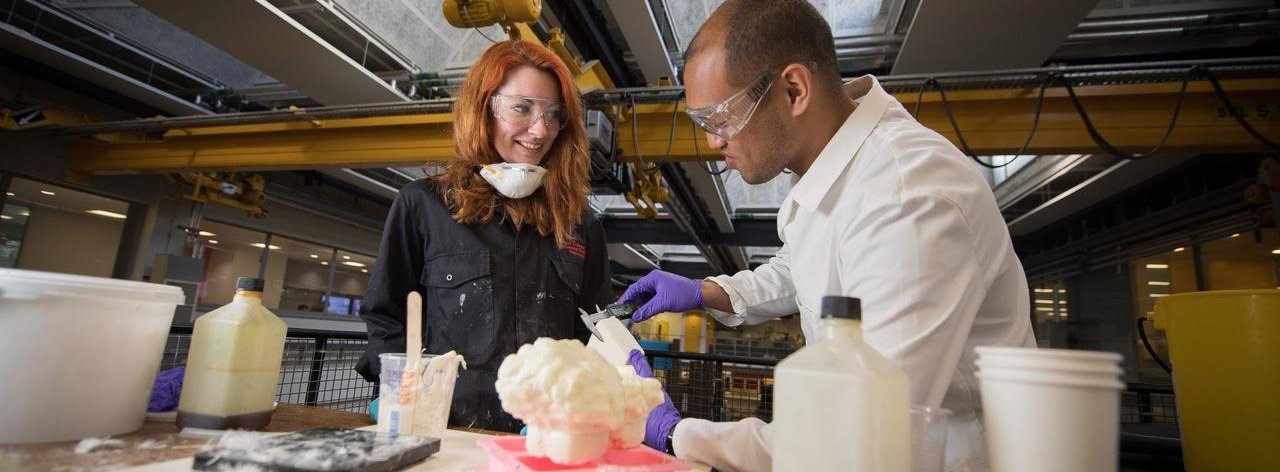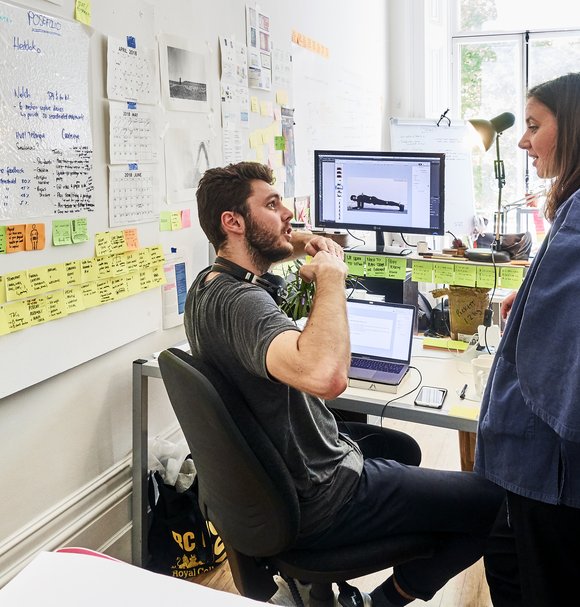
Key details
Date
- 18 October 2021
Author
- RCA
Read time
- 1 minute
Design experts from the RCA have developed a four week course for students, professionals and researchers to develop approaches to ethical issues that use social values as an opportunity for innovation.
Key details
Date
- 18 October 2021
Author
- RCA
Read time
- 1 minute
The Ethical Practices to Guide Innovation course is available online through FutureLearn. The course allows learners to access design thinking from world-leading experts, foster diverse forms of creativity and use creative practices to confront and interrogate social challenges as an opportunity for change.
The course draws a broad collection of contributors bringing diverse exchange and unique insights from across the creative industries, policy, regulation and government. Our contributors include Tibor Balint (Principal Human Centered Designer at NASA's Jet Propulsion Laboratory), Catherine Dormor (Head of Research Programmes at the RCA), Ruth Kikin-Gil (Responsible AI Leader, Microsoft) and many more.
Why study ethical innovation?

Third Thumb, Dani Clode
Society is changing at a rapid pace and industries, businesses and organisations experience the transformation of their sector through growing global challenges. These new changes and transformations are uncertain journeys requiring mentorship and guidance.
Our tutors have put together a curriculum that allows learners to implement knowledge gained in their own industries and disciplines. The four weeks of the course aim to generate a culture of ethical practices to guide innovation through the expertise of our unique community using social values as a guideline for change.
How will we learn?

Karthika Sakthivel, MA Digital Direction
The RCA has partnered with FutureLearn, the online open source platform for education with a focus on social learning. The learning experience on the course uses online resources in the form of articles, podcasts and practical exercises. Facilitated by the RCA, learners respond to the content and engage with each other as they progress through the course.
All of the resources for the course have been developed by RCA academics and industry contributors. Though our tutors have developed the experience from an art and design point of view, they are interested to know how ethical challenges can be tackled through creativity from other professional perspectives, and how these approaches could be implemented and further developed in any other sector including computer science, policy, health, engineering, government, charities, and generally anyone who in their everyday work is exposed to ethical decisions.
